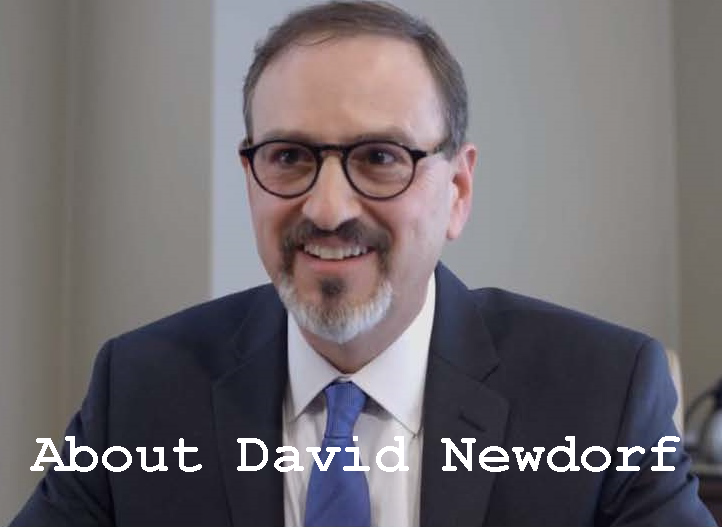Where You Sue (or Get Sued) Matters
September 26, 2011 by David Newdorf
Filed under Lit Tip Of The Week:™ Practical Advice For Litigators
You may have a choice of courts in which to file your California personal injury or business claim.
Should you choose state or federal court? Which county or state or judicial district? These choices matter because of differing procedural rules, local procedures, and jury demographics. For example, federal court requires a unanimous jury to reach a verdict (even in a civil case), but only 9 jurors out of 12 are needed to reach a verdict in California state courts. Next to an outright defense verdict, a hung jury is generally the civil defendant’s next best outcome. Since hung juries are more likely in federal court (you only need one hold out juror), a defendant may have a good reason to remove a case from state to federal court.
Defendants benefit from federal court summary judgment procedures.
In U.S. District Court, the shorter notice periods for bringing summary judgment motions generally favor defendants. With four to five weeks from filing to hearing in federal court, plaintiffs may not have a chance to conduct discovery directed at issues and points raised in the motion. In California courts, the opposing party will have at least 60 days before its opposition is due. During this time, the plaintiff may serve written discovery requests and take depositions if needed to shore up the evidence in support of an essential element of plaintiff’s claim. Finally, federal judges have more latitude to grant partial summary judgment concerning discrete issues compared to the narrow grounds for summary adjudication under the California Code of Civil Procedure.
Choosing your jury pool
In state court, jury pools vary from county to county. Rural counties tend to provide more conservative jury pools, which often is reflected in defense verdicts or lower plaintiff’s verdicts. Urban counties generally are more plaintiff-friendly venues. But even within a metropolitan area, jury pools differ from county to county and courthouse to courthouse.
Lawsuit venue rules vary depending on the case
You may have little choice about where to file your action. For example, consumer collection actions can only be filed in the county where the contract was signed or the county where the defendant currently resides. A defendant may have the option to remove a lawsuit to federal court, but the removal petition must be filed within 30 days of service of the complaint. Where there’s a choice, the decision where to file can have a large effect on the ultimate outcome of litigation. Consult with an experienced business or personal injury attorney concerning these strategic decisions. If you are a transactional lawyer, you would be well advised to consult with (or refer your client to) a litigator regarding these strategic litigation calls.
About Newdorf Legal – a California
Business Litigation Law Firm
Newdorf Legal is the go-to small firm for big problems. When business executives and public officials face complex legal challenges, they turn to David Newdorf for advice and representation. The firm’s lawyers have significant experience in the private and public sectors handling high-profile litigation. Newdorf Legal provides business and public entity clients expert advice and representation in:
- business litigation
- commercial disputes
- California breach of contract lawsuits
- business torts/interference with contract
- real property litigation
- joint venture/partnership issues
- investor lawsuits
- fraud and other civil actions
For a free copy of our informative brochure, “The Top 10 Business Litigation Mistakes . . . and how to avoid them,” contact Newdorf Legal.
Call David Newdorf at (415) 357-1234 (or e-mail to info(at)newdorf.com) for all of your California complex litigation questions.
S.F. Superior Court’s Closure of One Law & Motion Courtroom Will Lead to Big Changes
September 19, 2011 by David Newdorf
Filed under Around the Courthouse
Effective October 3, 2011, San Francisco Superior Court is closing one of its two Law and Motion courtrooms due to budget cut backs.
The new Law and Motion judge will be the Hon. Harold E. Kahn, to be located in Department 302 at the Civic Center Courthouse. Judges Peter Busch and Loretta Giorgi, who had been assigned to Law and Motion duties, will be moving on to the Hall of Justice, where they will preside over criminal trials.
The coming 50 percent reduction in judicial staffing will lead to big changes in civil law and motion practice. Just a year or two ago, there were two commissioners handling discovery motions in addition to two Law and Motion judges. The Court elminated the Discovery Departments and shifted that work to the two law and motion judges. Now, Judge Kahn will be handling the work load formerly shared by four judicial officers (with the exception of asbestos cases, which have all been transferred to a new, specialized department).
In the past, a lawyer could schedule a motion in S.F. Superior Court on any date without first reserving the hearing date. That will inevitably change. San Francisco will be forced to follow other Bay Area courts, such as San Mateo and Alameda County, that ration hearing dates. These courts — and no doubt, San Francisco soon — allow only a limited number of motions on each hearing date. In some counties, it takes 60 days to have a demurrer heard. With several rounds of motions and amended complaints, a case can easily plod along for a year or more in the initial pleading phase.
This cutback came after the state Judicial Council provided several million dollars in additional funding in order to stave off even more severe layoffs in San Francisco Superior Court. The state court cutbacks will likely put additional pressure on federal courts as more lawyers decide to go federal if they have that option. For years, the trend had been in favor of state court filing. Many lawyers who could have filed in federal court chose to file employmnent and civil rights cases in Superior Court under California state stautes to avoid federal court.
With these cutbacks, lawyers will need to be more focused and effective advocates to get the attention of an over-worked Law and Motion department. See San Francisco Law and Motion Tips for best practices in this department.
ABOUT NEWDORF LEGAL – A CALIFORNIA
BUSINESS LITIGATION LAW FIRM
Newdorf Legal is the go-to small firm for big problems. When business executives and public officials face complex legal challenges, they turn to David Newdorf for advice and representation. The firm’s lawyers have significant experience in the private and public sectors handling high-profile litigation. Newdorf Legal provides business and public entity clients expert advice and representation in:
- business litigation
- commercial disputes
- California breach of contract lawsuits
- business torts/interference with contract
- real property litigation
- joint venture/partnership issues
- investor lawsuits
- fraud and other civil actions
For a free copy of our informative brochure, “The Top 10 Business Litigation Mistakes . . . and how to avoid them,” contact Newdorf Legal.
Call David Newdorf at (415) 357-1234 for all of your California complex litigation questions.
San Francisco business attorney David Newdorf helps obtain ruling from California Supreme Court that will save business and governments billions annually.
August 18, 2011 by David Newdorf
Filed under Lawyers & The Law
SAN FRANCISCO (August 18, 2011 ) – The California Supreme Court ruled this week that court awards to accident victims for past medical expenses must be limited to the amounts actually paid and accepted as payment in full by medical care providers. The case pitted personal injury lawyers against doctors, hospitals, local government and insurers who urged the Court to adopt limits on court damage awards. The case is Howell v. Hamilton Meats & Provisions, Inc., S179115, decided on Aug. 18, 2011.
San Francisco business litigator David Newdorf represented the League of California Cities as a friend of the court, or amicus curiae, in the case. The Supreme Court cited Mr. Newdorf’s brief in rendering its decision.
Lawyers for accident victims had asked the Court to allow juries to award the full amount stated on doctor and hospital bills, even if the care provider accepted a reduced payment from insurance and neither the patient nor the insurance company was liable for higher billed amount. The doctors and hospitals would not be able to share in the increased recovery for medical expenses. The amount would be paid to the plaintiff and, under typical contingency fee agreements, shared with the plaintiff’s lawyer.
The higher medical expense awards would have added several billion dollars to court judgments annually, according to insurance industry estimates. California cities, which are often viewed as “deep pockets” by personal injury lawyers, would have faced higher tort payouts at a time when vital services are already being cut.
“Cities and businesses are interested in a tort system that fairly compensates injured persons while protecting taxpayers and citizens from undue expense,” Mr. Newdorf said. “The issues raised by this case have a significant effect on the ability of state and local government to provide vital services to all Californians.”
Founded in 1898, the League of California Cities is an association of 474 California cities dedicated to protecting and restoring local control to provide for the public health, safety, and welfare of their residents, and to enhance the quality of life for all Californians.
To read the Supreme Court decision or Mr. Newdorf’s amicus brief., visit newdorflegal.com.
Mr. Newdorf has been litigating this issue on behalf of clients since 2001, when he was appellate counsel in one of the seminal cases on medical damages, Nishihama v. City and County of San Francisco (2001) 93 Cal. App. 4th 298. The California Supreme Court decision in Howell affirmed the earlier decision in Nishihama.
Mr. Newdorf is managing attorney of San Francisco-based Newdorf Legal, which represents individuals, businesses and public entities in trials and appeals. The firm’s practice areas include business disputes, business torts/interference with contract, breach of contract, breach of fiduciary duty, fraud, investment disputes, real estate, commercial landlord-tenant cases, and municipal law. Mr. Newdorf worked previously as a trial lawyer and team leader in the San Francisco City Attorney’s Office and was a litigation associate at a major international law firm. Mr. Newdorf was recently listed in the 2011 Northern California Super Lawyers magazine, an honor reserved for 5 percent of the State’s lawyers based on nomination by fellow lawyers and evaluation of professional reputation and achievement.
For all of your litigation questions, contact Newdorf Legal, a San Francisco business litigation law firm.









